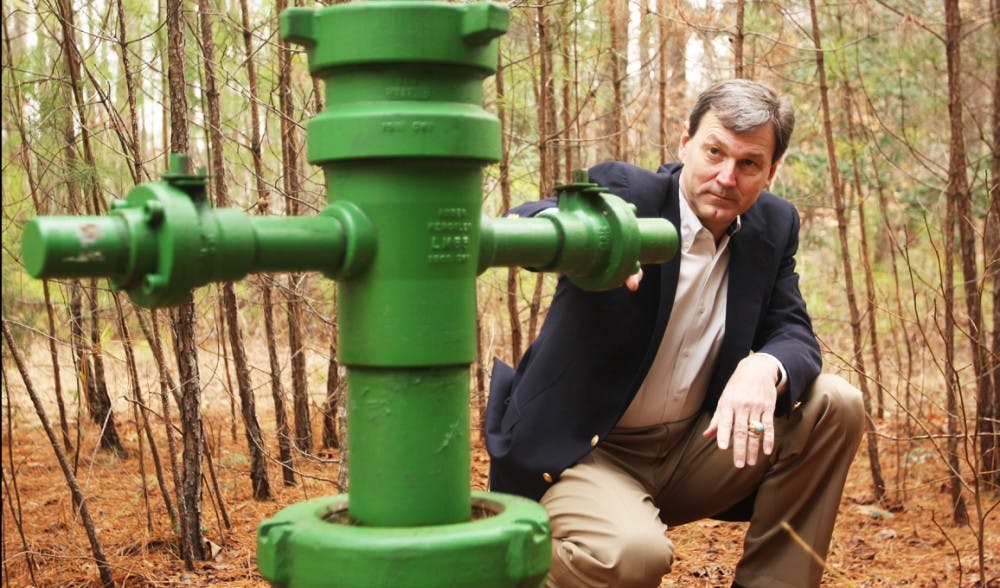This is the first edition of a monthly series. Next month: mineral rights issues.
At the corner of Carthage and Steele streets in downtown Sanford, a black flag with four center-pointing arrows slowly flaps against a streetlight.
The small gust of wind leaves a message rippling above the quiet intersection: “Well Centered.”
Yet, although the small town of about 28,000 people sits almost exactly in the center of North Carolina, a glance around the block reveals that it’s not the center of much else — especially economic prosperity.
The manufacturing-reliant town, home to a handful of plants including Pfizer and Caterpillar, has suffered from unemployment rates upwards of 10 percent since 2008, leaving boarded-up shops, vacant buildings and picked-over thrift shops to dot the town’s center.
“We’re languishing in Lee County in the trough that follows an economic recession and precedes recovery because of an over reliance on industrial manufacturing,” said Jim Womack, a 12-year Sanford resident and member of the Lee County Board of Commissioners.
To combat his county’s economic slump, Womack has long advocated for hydraulic fracturing, or “fracking,” a drilling process that injects a mixture of water, sand and chemicals into shale rock formations underground to release trapped natural gas.
His efforts became reality in July when the Republican-led legislature voted to end the state’s existing drilling ban, and now that Gov. Pat McCrory has announced his plan to open the state to new methods of energy production, Womack said it seems that the moons are aligning.
He now serves as chairman of the Mining and Energy Commission, a 13-member group that will finalize a set of fracking regulations by early 2015.




